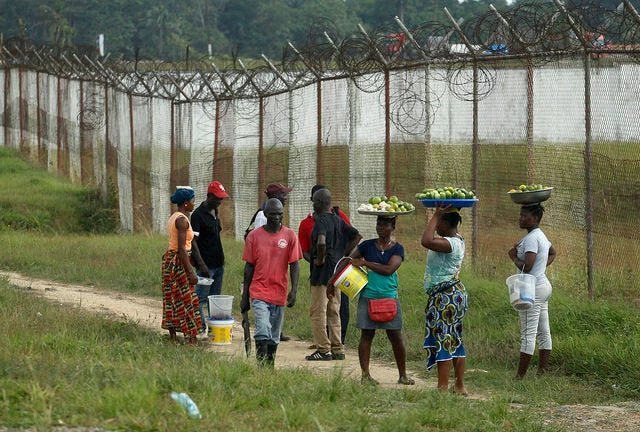
Photo © Dominic Chavez/World Bank
The Open Government Partnership (OGP) just concluded its third Global Summit. Government, civil society, and development partner representatives from over one hundred countries met in Mexico City to strengthen international cooperation around the open government agenda.
This year the summit emphasized connections between the OGP mission and the slate of newly adopted Sustainable Development Goals (SDGs) aimed at ending extreme poverty by 2030.
Delegates to the summit vowed to contribute to achievement of SDG Goal 16, and committed to mainstreaming open government principles such as including transparency, citizen participation, accountability and integrity, and technology and innovation into implementation of the entire 2030 Agenda for Sustainable Development.
Recognizing that collaborative, multi-sectoral approaches lead to better results, the World Bank intends to anchor its support for open government reforms and initiatives in OGP member countries’ national action plans. The result of extensive consultations with government and civil society stakeholders, OGP national action plans are country-developed strategy papers designed around the specific open government needs, demands, and goals of a given country.
As an example, the Bank’s Open Aid Partnership (OAP) has been working for four years to make information on aid-financed activities more transparent and accessible. This mission clearly fits within the umbrella of increasing government openness. Now, OAP is working to align its engagements with the OGP in joint pursuit of the Global Goals. It does this by offering specific expertise in open aid data as countries develop their national action plans and implement related transparency commitments within the OGP framework.
OAP has piloted this approach with the Government of Liberia. Over the past year, the team has financially supported consultations around Liberia’s second national action plan and offered technical assistance during the drafting and revising stage of the aid-related commitments.
It is now working with the country’s OGP team, as well as with other World Bank units, to help turn words into action by supporting the actual implementation of these commitments within the specified two-year timeframe. Liberia’s Deputy Minister of Information noted recently that,
Citizen engagement, the two-way interaction between citizens and their governments that gives citizens a role in decision-making, is another major component of the open government agenda. Increasingly, World Bank programs are aligning their activities related to citizen engagement and participation with OGP priorities and national action plans.“Going through the exercise of creating a National Action Plan for the second time has underscored the importance of having concrete targets amongst the high-level commitments. Launching an open data portal for aid with the support of OAP will be a visible, practical way to advance government openness in Liberia.”
For instance, the Global Partnership for Social Accountability (GPSA) has worked to strengthen the ability of civil society organizations to involve citizens in monitoring government development policies and programs, as well as to close the so-called “feedback loop,” with OGP priorities and national action plans.
This means an increased focus on putting open data and citizen-generated data to active use at multiple levels, and coming up with co-created solutions across the government-civil society divide.
Furthermore, the Open Government Global Solutions Group is aligning its country client engagement with OGP commitments. As such, it is looking into the possibility of using OGP’s Independent Reporting Mechanism (IRM) progress reports on action plan implementation as disbursement linked indicators in future program-for-results operations.
In order to turn “billions” of official development assistance into “trillions” in development investments of all kinds (PDF), national governments and development partners must streamline efforts to avoid overlapping or duplicative efforts. OGP national action plans are an effective, country-led framework for collaboration that can help organize inputs from multiple sources and partnerships like OAP or the GPSA.
Stay tuned as we experiment with the best ways to support the OGP and look to scale up our pilot initiatives in the near future.
Tweet these:
/@WorldBank is aligning its citizen engagement activities with OGP priorities and national action plans
The World Bank lines up in support of the OGP
Harnessing OGP action plans and @WorldBank ’s resources to promote #opengov



Join the Conversation